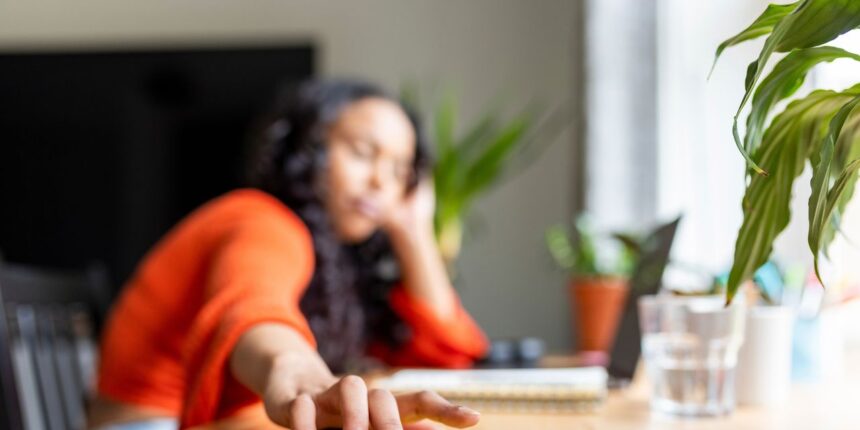“Social media for many people stokes comparison with unrealistic expectations,” Gail Saltz, MD, associate professor of psychiatry at the NY Presbyterian Hospital Weill-Cornell School of Medicine, tells SELF.
Dr. Gallagher agrees. “You’re constantly comparing your life to other people on social media—that alone will increase anxiety and depression,” she says. “Even just taking a one-week break from this constant comparison can have a benefit for your mental health.” At the same time, you’re faced with a lot of content that’s urging you to buy new stuff, she points out. “That can end up feeling like you need to buy certain things to have a better life,” Dr. Gallagher says.
But you may also be consuming content on social media that’s deliberately stoking feelings of anxiety, Hillary Ammon, PsyD, a clinical psychologist at the Center for Anxiety & Women’s Emotional Wellness, tells SELF. “The tricky thing about algorithms is that they see what you view and then provide more of that content,” she says. “Before you realize it, you can be down a rabbit hole related to content that is creating feelings of fear or sadness.”
Stepping back from those apps can also give you a sense of control, which is a concern that Dr. Gallagher says she hears a lot from patients around their social media use.
Also worth pointing out, per Dr. Saltz: Being on social media means you’re not doing other meaningful things. (Again, people spent nearly two hours a day on social media on average.) “That in and of itself can increase anxiety and lower mood,” she says.
As for the insomnia link, it tends to go hand-in-hand with anxiety, Christopher Winter, MD, a sleep medicine specialist, neurologist, and author of The Sleep Solution: Why Your Sleep Is Broken and How to Fix It, tells SELF. Meaning, when you feel more anxious, it’s harder to sleep. “Also, when social media is eliminated from the evening routine, it opens up time for reading, meditation, prayer, yoga, breathing exercises, or simply connecting with a partner in a more meaningful way,” he says. “All of these things are tangible ways to improve sleep quality.”
How to pull this off
You can simply make a pact with yourself to go off of social media for a week and see how you do, Dr. Gallagher says. But if that feels like a stretch, Dr. Saltz suggests starting with a one-day detox. “Then, move to four days; then, do a week,” she says. “You’ll be able to gauge if you have a little more of a relaxed feeling afterwards pretty easily.” (If you don’t trust yourself to actually stay off social media, Dr. Ammon recommends deleting your apps.)
Read the full article here



